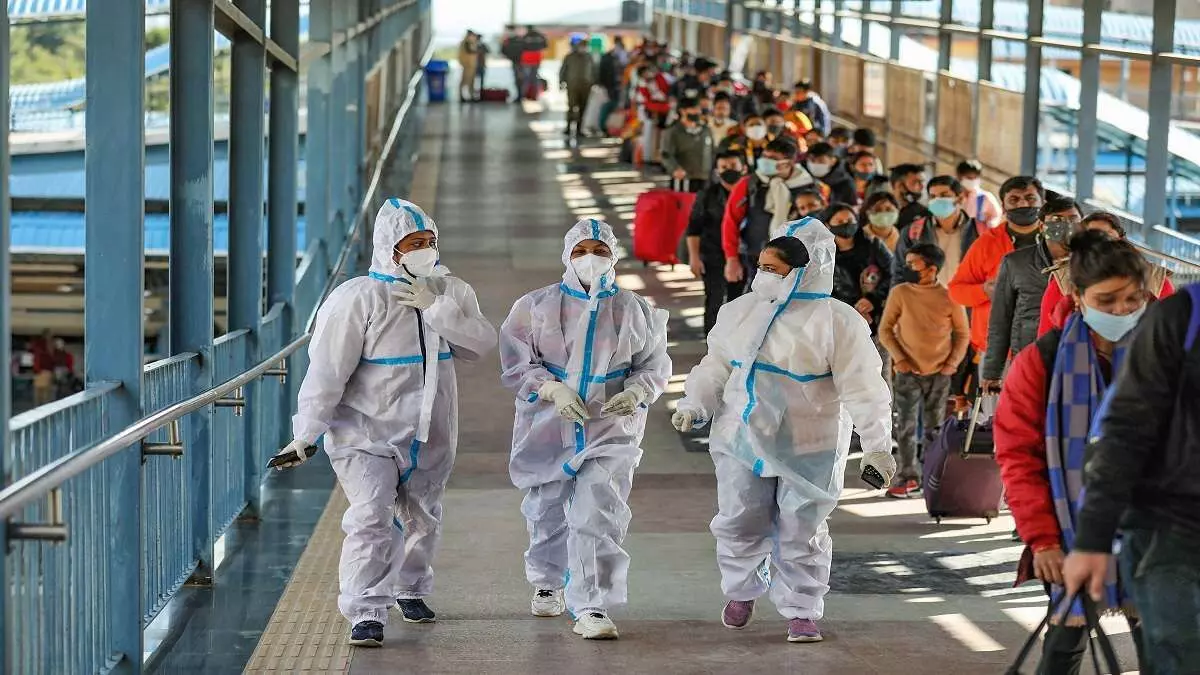
"Prepare for any eventuality": Dr Randeep Guleria on Omicron threat
text_fieldsWith cases of Omicron rising over the world, India should also begin preparing for all eventualities and take every possible precaution agains the spread of the virus said Dr.Randeep Guleria, head of All India Institute of Medical Sciences on Sunday.
"We should prepare and hope that things are not as bad as in the United Kingdom. We need more data on Omicron. Whenever there is a surge in cases in other parts of the world, we need to monitor it closely and be prepared for any eventuality. It is better to stay prepared than to get caught off-guard," said Guleria while talking to ANI.
The UK has currently recorded its largest jump in infections due to the Omicron variant of the SARS-Cov-2 virus, with 37,101 infections being reported by the UK Health Security Agency (UKHSA). A new wave of infections is gripping the country with more than 10,000 cases reported on Sunday, taking the total number of Covid-19 infections in the country to 24,968.
7 people, who were believed to have been infected with the Omicron variant, died as of Thursday, up from the one death in the UKHSA's previous data which ran up to Tuesday. Hospitalisation numbers also increased during this span – admissions of people thought to have been infected with Omicron increased to 85 from 65.
India's National COVID-19 Supermodel Committee on Saturday predicted that the third wave of Covid-19 is expected to hit India in February but that this will be milder than the second wave which primarily consisted of the Delta variant.
"With the new variant, our current forecast is that the country could see the third wave by February but it will be milder than the second wave. So far we have seen that the severity of Omicron is not like the one seen in the Delta variant," said Manindra Agarwal, IIT scientist involved in the mathematical projection of trajectory of COVID-19, to PTI.
He, however, said a close eye is being kept on cases in South Africa where many cases of this variant have been recorded. Agarwal added that as of now South Africa has not seen a rise in hospitalisation. He said a fresh set of data on the virus and hospitalisations would help in getting a more solid picture.

















